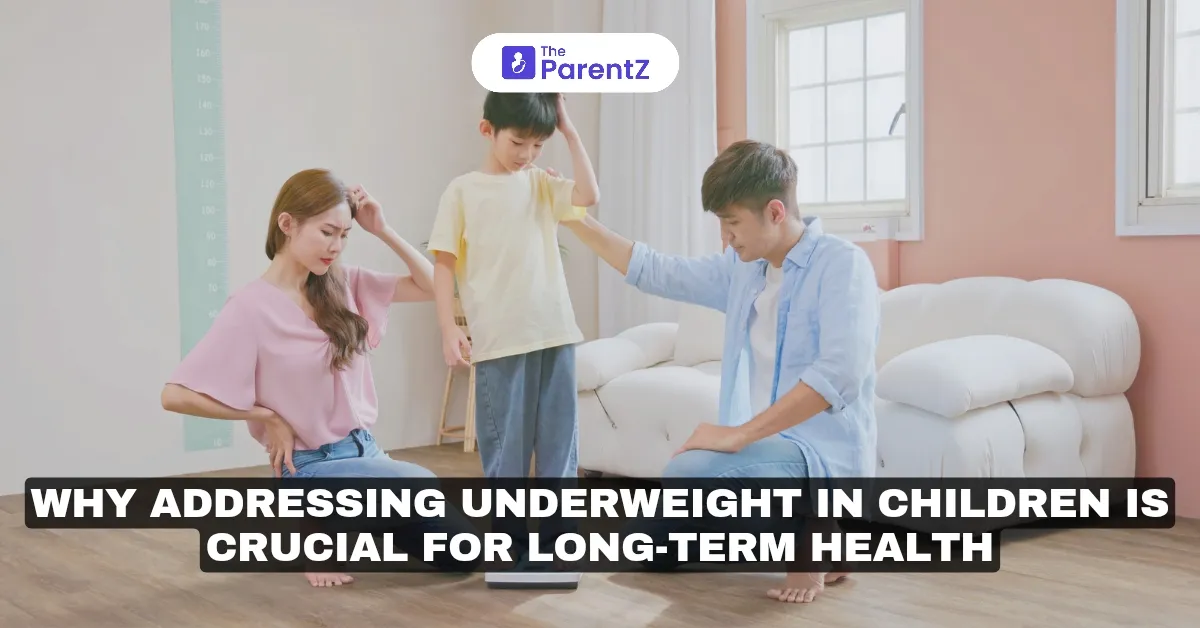Why is Being Underweight a Concern for Children?
Childhood nutrition plays a crucial role in long-term health. While obesity is widely discussed, being underweight is an equally serious concern. A child who consistently weighs less than the normal range for their age and height may be at risk for developmental delays, weakened immunity, and chronic health conditions in adulthood. Addressing underweight issues early can help prevent long-term complications and ensure proper growth and development.
Causes of Underweight in Children
Several factors can contribute to a child being underweight, including:
1. Poor Nutrition and Diet Deficiencies
• Lack of essential macronutrients (proteins, fats, carbohydrates) and micronutrients (vitamins and minerals).
• Picky eating habits leading to insufficient calorie intake.
• Diets low in energy-dense foods.
2. High Metabolic Rate
• Some children naturally have a fast metabolism, burning calories quicker than they consume.
• Increased activity levels without adequate food intake can lead to weight loss.
3. Chronic Illnesses and Medical Conditions
• Digestive disorders (e.g., celiac disease, Crohn’s disease) that prevent nutrient absorption.
• Hormonal imbalances such as hyperthyroidism, which speeds up metabolism.
• Infections or recurrent illnesses that cause loss of appetite.
4. Psychological Factors and Eating Disorders
• Stress, anxiety, or depression leading to appetite suppression.
• Eating disorders like anorexia nervosa or avoidant/restrictive food intake disorder (ARFID).
5. Genetic Factors
• Some children inherit a naturally lean body type, which is not necessarily unhealthy unless accompanied by symptoms like fatigue or frequent illness.
Long-Term Health Implications of Being Underweight
Failing to address underweight issues in childhood can lead to:
1. Weakened Immune System
• Increased susceptibility to infections and slower recovery from illnesses.
2. Delayed Growth and Development
• Inadequate nutrition can lead to stunted height, delayed puberty, and weaker bones.
3. Cognitive Impairment
• Poor nutrition, especially lack of essential fats and proteins, can affect brain development, learning ability, and concentration.
4. Increased Risk of Osteoporosis
• Low body weight can result in poor bone density, increasing the risk of fractures later in life.
5. Reproductive Health Issues
• In adolescent girls, being underweight can cause irregular periods or delayed menstruation.
6. Higher Risk of Chronic Diseases
• Malnourished children are more prone to cardiovascular diseases, metabolic disorders, and muscle weakness in adulthood.
When to Seek Medical Help?
If your child:
• Has a consistently low weight for their age and height.
• Appears tired, weak, or frequently falls sick.
• Has persistent digestive issues or difficulty eating.
• Shows signs of developmental delays.
Consulting the right specialist is crucial:
• Pediatrician: First step for assessment and guidance.
• Dietitian/Nutritionist: To create a balanced diet plan.
• Endocrinologist: If a hormonal disorder is suspected.
• Gastroenterologist: For digestive-related concerns.
• Psychologist/Psychiatrist: If an eating disorder or emotional stress is affecting weight.
How to Help Your Child Gain a Healthy Weight
• Nutrient-Dense Diet: Encourage whole grains, healthy fats, proteins, and calorie-rich snacks like nuts, dairy, and avocados.
• Regular Meal Schedule: Ensure frequent, balanced meals and avoid skipping meals.
• Monitor Physical Activity: Balance between exercise and adequate nutrition.
• Address Any Medical Conditions: Identify and treat underlying health issues affecting weight.
Ensuring your child maintains a healthy weight is essential for their long-term well-being. If you’re concerned about their growth, seeking medical advice early can prevent potential health risks and help them thrive.








Be the first one to comment on this story.